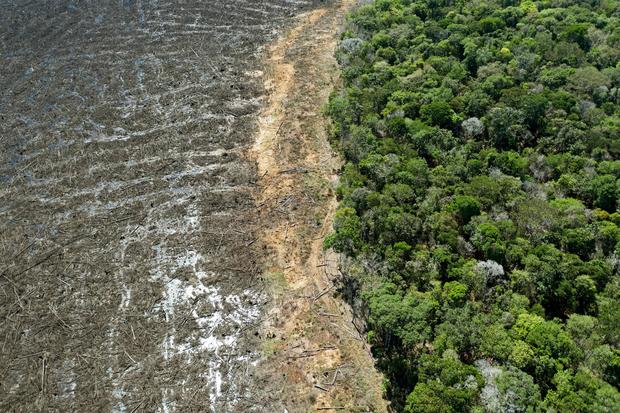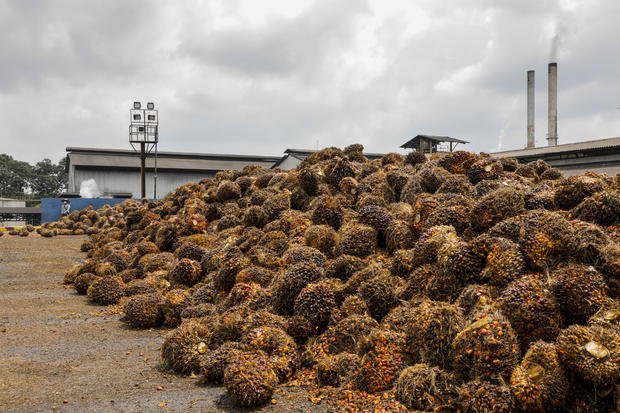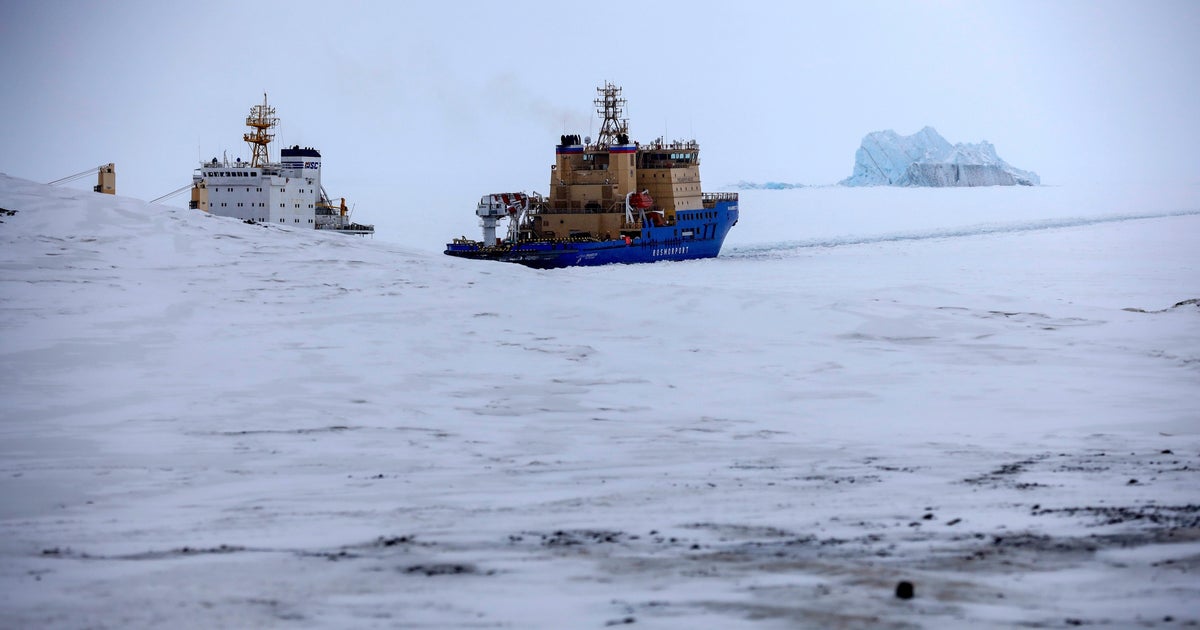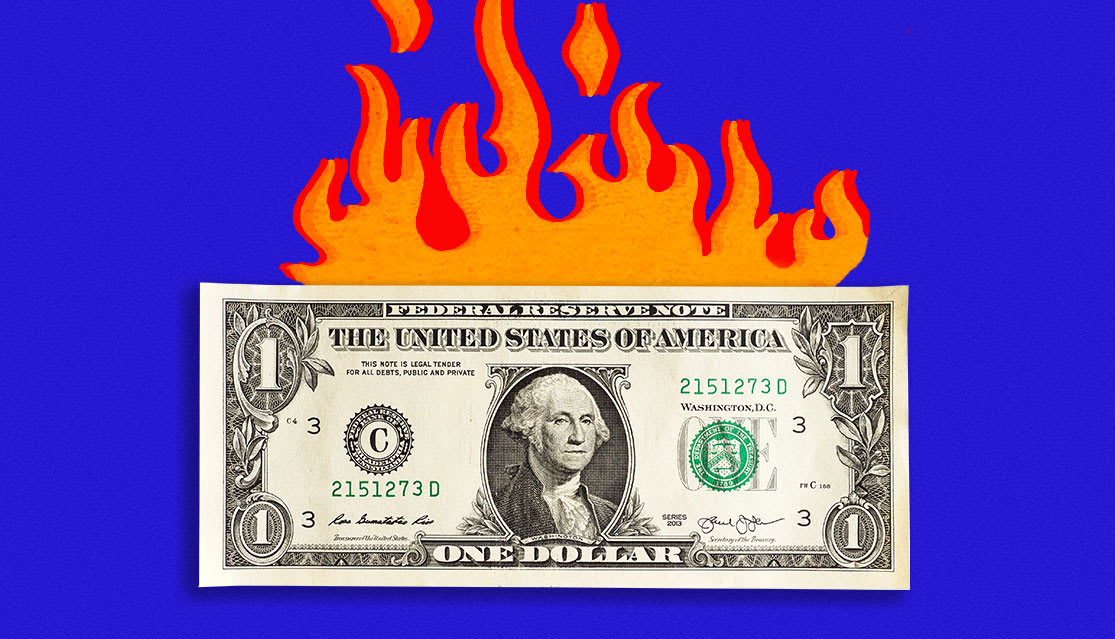Illegal deforestation is ravaging the planet and driving emissions up. A new bill in Congress seeks to change that.
The U.S. relies heavily on imported agriculture commodities. Nearly half of all the processed items Americans buy in grocery stores contain palm oil from around the world. America is the leading importer of raw rubber and tires, made from rubber trees harvested in southwest Asia. The U.S. is also the leading importer of cocoa, often from Ghana and Côte d'Ivoire. These products all come from tropical forests.
However, these goods come at a steep cost to the environment. The harvesting of palm-driven land in Indonesia and Malaysia alone contributes roughly 1.4% of global net carbon dioxide emissions each year, and many of these imported commodities are sourced from illegally deforested land. Democratic Senator Brian Schatz of Hawaii is planning to introduce a bill to change that.
"I don't think the average consumer knows that half the stuff they buy at the supermarket contains palm oil, and most of that palm oil is from illegally deforested land," Schatz told CBS News.
In Brazil, for example, the vast majority of deforestation is illegal. America is a leading buyer of processed hides (leather) from the country. One commodities expert called the Brazilian rainforest a "free for all" where no one is stopping miners, loggers and ranchers from destroying legally protected, often Indigenous, land.
A study by the World Resources Institute released in February found that seven commodities — cattle, oil palm, soy, cocoa, rubber, coffee and plantation wood fiber — accounted for 26% of global tree cover loss from 2001-2015. That amounts to 71.9 million hectares of destroyed forest, an area of land more than twice the size of Montana.
Due to a lack of transparency between markets, there is no system in place for buyers to know exactly how and from where commodities are sourced — leading American manufacturers and, ultimately, consumers to unwittingly buy illegally-sourced products.
Schatz's yet-to-be-named bill seeks to restrict market access for certain commodities that originate from illegally deforested land. The bill would establish a standing advisory committee to track and monitor commodity sourcing so that importers can knowingly purchase legally sourced goods. In theory, that would then create market leverage promoting ethical sourcing, thereby protecting the rainforests that are essential for absorbing carbon dioxide, purifying the air and cooling the planet.
According to a 2018 report, tree cover loss in tropical forests accounts for about 8% of global emissions. Conversely, those same lands left untouched would provide 23% of the cost-effective climate mitigation the world needs to reach global climate goals.
Schatz's bill already has a House counterpart that will be introduced by Oregon's Earl Blumenauer, a Democrat. It mirrors government action recently taken by the United Kingdom and the European Union.
One major objective of the bill is to create transparency in the supply chain. If passed, importers would have to trace their supply chains and prove commodities were sourced legally. Countries with a history of more rampant illegal deforestation will have higher requirements for reporting and tracing. The bill would also make it possible for U.S. courts to prosecute companies laundering illegally sourced products.
Executive Director of the Environmental Investigation Agency Alexander von Bismarck said it would be "enormously impactful" if Congress passed the bill. Von Bismarck said that companies have in the past voluntarily committed to sourcing legally, but without a way to accurately trace supply chains and with competitors not making the same commitment, markets haven't changed.
"What everybody agrees on now is that voluntary commitments are important but don't cut it," he said.
To improve effectiveness, the bill would provide aid to countries that commit to eliminating illegal deforestation and additional incentives would come from a federal procurement preference for deforestation-free products.
Von Bismarck said American businesses and consumers can unite around responsible sourcing. That, mixed with some technological integration, he said, would significantly combat illegal deforestation.
"We are financing horrific crime around the globe," he said. "[Consumers] can't differentiate between the legal and the illegal. In some cases companies will be in the same boat where they will be unwitting traders of what I would say are criminal goods. Both the consumer and well-meaning companies want the transparency to be able to distinguish. And increasingly, that is cheap and possible."
The Environmental Investigation Agency and 28 other nonprofit organizations will publish an open letter Wednesday supporting the bill. Other signees include the World Wildlife Fund, Amnesty International USA and The Nature Conservancy.
Schatz hopes his legislation will build on the legacy of the Lacey Act of 1900, the oldest wildlife protection statute in American history, which prohibited the introduction of invasive species and the interstate shipment of illegally sourced game. The bill was amended over time to forbid unlawfully-sourced plants, fish and wildlife from being sold in the U.S. and, in 2008, banned the unlawful import, export, transport and selling of illegally-sourced timber.
Schatz says the same should happen for tropical agricultural commodities.
"I believe we're going to look back on this moment in time like we look back now on treating dolphins as a bycatch from tuna fishing," he said. "That seems immoral, outdated, preposterous, and it shocks the conscious to think that it was permissible in the American market place, but it was."
"This is similarly offensive to our most basic ideals," Schatz added.
While the details of the legislation are currently being fine tuned, Schatz said he has already had "constructive conversations" with multiple Republican colleagues. He believes the bill will garner bipartisan support, as rainforest-related issues have in the past.






